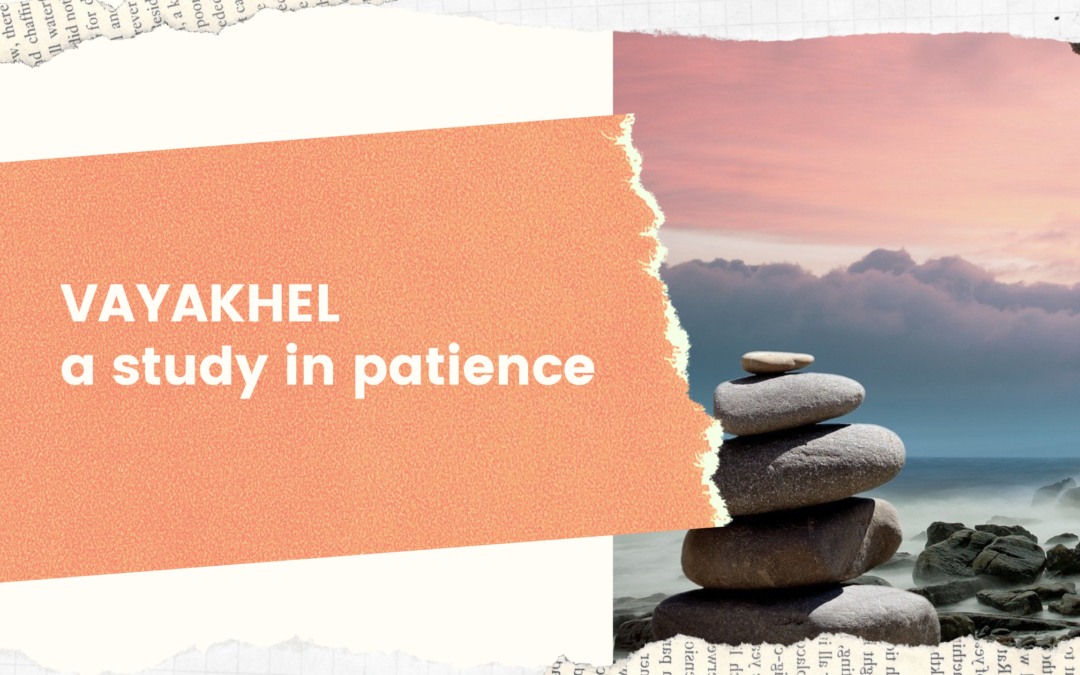I remember growing up watching The Jetsons. It was a cartoon about a middle-class family living in the year 2062 in Orbit City, with all the promised conveniences of science fiction: a job where one literally pushed a button for a living, flying cars, robots… and the only problems that happened were human-made, primarily about relationships with family, the boss, the occasional silly alien. 2062 doesn’t seem so far away, but the vision of a better world seems really far away. I remember back in the 1980’s reading fantastic books about space travel and world peace and praying that future would catch up to us. What we have in 2022 is a little closer to a dystopian Mad Max than it is to the ideal that Gene Roddenberry’s Star Trek hoped for. But even though things might seem bleak, we have paths forward.
The Jewish People are all too familiar with praying for a better tomorrow, only to be met with challenge after challenge. But the entirety of the Torah and our prayers tell us to face challenges each day knowing that we have the potential to make a paradise on earth. Even though every week we pray that “Bayom hahu yihyeh Adonai Ekhad u’sh’mo ekhad—On that day, God shall be One, and God’s name shall be One,” we are also taught that this vision isn’t something that can happen overnight, even though we are told constantly to work for it. In Pirkei Avot 2:16, we read: “It is not your responsibility to finish the work, but neither are you free to desist from it.” The Torah, the Mishnah, the Talmud… it all teaches that if we just work hard enough, we should be able to make Eden here on Earth. But how long do we have to work until we actually see real results?
How many of us are losing patience? Our people—and in fact many peoples around the world—have our share of pain, suffering, and loss. Many have joined the fight against injustice, bigotry, and hate, only to have the pendulum swing one more time back to where it started. How many times do we have to debate, vote, lobby, fundraise, participate in the public square, before things “stick”?
Even our own Temple community is a microcosm of tsuris: We have been dealing with Covid, trying to keep our Temple Family together, doing our best in a crazy economy, only to be met with a hurricane, and now we find ourselves like our ancestors: Wandering Jews. Do we deserve this? Absolutely not. Are we doing something about it? Absolutely. Just ask our Temple Leadership. Better yet, don’t. They know better than anyone about the difficult questions that need answering and the steps needed to be taken.
We are tired. We are resigned. We want to have hope, but also to see it bear fruit. But this is nothing new, as we can see in the Torah.
We read this week from Parshat Vayakhel. In last week’s Torah Portion, Moses had come down from Mount Sinai, bearing the two tablets of the Ten Commandments, ready to charge the People Israel with the building of the Tabernacle. Exodus 35 begins thus:
Moses then convoked the whole Israelite community and said to them: These are the things that THE ETERNAL has commanded you to do: On six days work may be done, but on the seventh day you shall have a sabbath of complete rest, holy to THE ETERNAL; whoever does any work on it shall be put to death. You shall kindle no fire throughout your settlements on the sabbath day.
Moses said further to the whole community of Israelites: This is what THE ETERNAL has commanded: Take from among you gifts to THE ETERNAL; everyone whose heart is so moved shall bring them—gifts for THE ETERNAL: gold, silver, and copper; blue, purple, and crimson yarns, fine linen… [Ex. 35:1-10]
And so on. Notice that before Moses charges the Israelites with the daunting task at hand—that of building the Tabernacle so that God might dwell among them—he first and foremost tells them they can do work for six days, but on the seventh day, they must observe a day of complete and total rest. Moses really lays it out: Should anyone do work on the Sabbath, they shall be put to death. Only after reminding the Israelites that they must observe the Sabbath that he began to give instructions of the gifts needed to construct the Tabernacle.
Seder, or Order, for Jews, is extremely important. Here, the punishment is laid out first before any building instructions are given because Moses assumes the Israelites will want to hurry up and get the job done. They just escaped Egypt and want their God to dwell among them, right here and right now. But Moses says, “Sure, okay, but before we get started, remember: Patience. You will need to rest.” No matter how hard we work or try, we won’t be as successful unless we take a break. According to Or HaChaim:
There is also a lesson here that the success of the work performed during the six days of the week depends on the observance of the seventh day as a holy day. The reason is that the Sabbath is the soul of the world.
And let’s talk about taking a break. So many of us don’t give ourselves one. Yes, there is the temporal break one takes observing Shabbat—a 24 hour period where we can rest body, heart, and spirit and find refreshment and wisdom—but what about giving ourselves slack? We always seem to be working under the watchful eye of a parent, a partner or spouse, a boss, society, and we are made to feel “less than.” In part, that is from the others’ often unreasonable impositions, but there’s the other part, where we ourselves think we should be better, smarter, earning more, doing more, being more… In Pirkei Avot, Rabbi Tarfon said, “The day is short, and the work is plentiful, and the laborers are indolent, and the reward is great, and the master of the house is insistent.” Even in our own wisdom literature, we are told to, as the group Daft Punk put it, “Work it harder, make it better, Do it faster, makes us stronger, More than ever, hour after hour, Work is never over.”
This is not only unsustainable, it dismisses the essence of what the Sabbath Day is and means.
Yes, we are charged by our moral core to make a world better for ourselves, our loved ones, and society; Yes, we are driven by want and need to work harder for an easier life. But as we read in the Torah this week: Before we do any work, no matter how important—even building the Tabernacle—we ought to give ourselves a break.
This includes doing the work well. There is a huge difference between doing something perfectly and doing something as well as we can. Too many of us are caught up in doing something perfectly that when we fall even shy of perfection, we feel as if we have let the world down. We have not. We have tried, thoughtfully, sincerely, and with intention. That is much better than striving for a Utopia and feeling like a failure because it hasn’t arrived yet. I’ve got news for you: We’ve been trying for millennia to perfect the world. It will never be perfect.
But we still have to build the Tabernacle. We still have to work on our Temple Community. We still have to fight the good fight, ensuring peace in the world. We still have to engage in political discourse. We just have to remember to take a break, be kind to ourselves, allow us the leeway to strive towards perfection without being perfect.
On this Shabbat, let us take a break: Let us really soak in this day of rest, allowing us to recharge, reflect, and renew ourselves. Let us give ourselves a break: Let us be proud of our efforts, accept our shortcomings, and recognize that the world does not sit upon our shoulders alone. And let us have a break from the news, from unnecessary debate, from the outside world, and allow ourselves to find the still, small voice inside us, embracing that warm voice, telling us we have done well this week, as best we could. Come Sunday, we’ll try again. And again. And again.
Kein y’hi ratzon, may this be God’s will. Amen.


